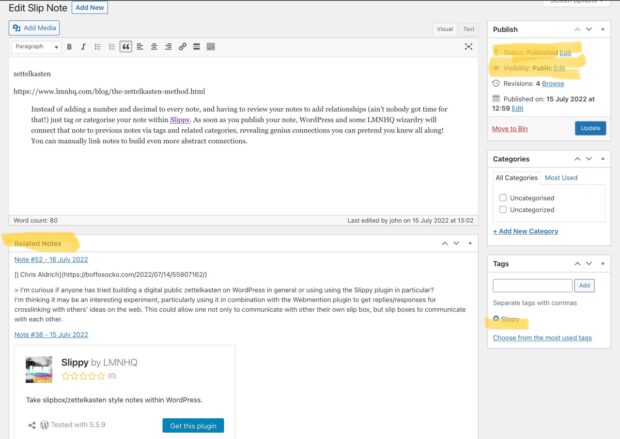The idea
I’ll share people’s sites I follow and enjoy. I’ll also suggest some feed readers to try out along with other related resources. I’ll use the tag/hashtag #FeedReaderFriday to encourage the website to website conversation. If you’re interested in the experiment, do come and join me and help to spread the word.
#FeedReaderFriday: A Suggestion for Changing our Social Media Patterns | Chris Aldrich
Feed Readers
Feed readers allow you to ‘follow’ websites something of the same way as you follow accounts on Twitter, mastodon and the like. Feed readers are different in that the feeds they read are, mostly, on the open web. Feed Readers use RSS to pull content from other sites for you to read. If you listen to podcasts in an app you are using a Feed Reader, the app. Podcasts like blog posts are distributed via RSS.
Chris suggests What is a feed? (a.k.a. RSS) | About Feeds to get started.
My main feed reader is Inoreader. It has been the one I’ve used most since the demise of Google Reader. It allows me to quickly read or skim a lot of blogs and organise that reading in a variety of ways.
More recently I’ve been using FeedLand. FeedLand is a development by Dave Winer who has an amazing pedigree in software development, RSS in particular.
FeedLand is a really interesting product, still under development but ready for use. FeedLand allows you to collate RSS feeds either by adding them yourself or by seeing what feeds other users have added. FeedLand then let’s you to organise, categorise these feeds. FeedLand is a feed reader, so you can read the feeds you follow. FeedLand allow you to publish readers for other folk to read in a few different ways. Here is one hosted on FeedLand and one on my raspberry pi. Both are experiments at the moment. Finally FeedLand allows you to produce a simple feed. Of your own. Here is mine viewed on FeedLand.
Folk to follow
So a couple of people I find it interesting to follow via RSS
- the dailywebthing linkport one of Joe Jennet’s suite of sharing sites, three links a day. A huge variety of interesting sites. Not so much a gold mine as a gold, silver, bronze, and rock mine.
- CogDogBlog Alan blogs about education, open, WordPress & Flickr amongs other things. Great detail with a personal touch. I think I’ve been reading him for as long as I’ve been blogging. A wonderful blog.
I am going to try and post for the next couple of Fridays with a wee bit about readers I use and a couple of suggestions for follows.

